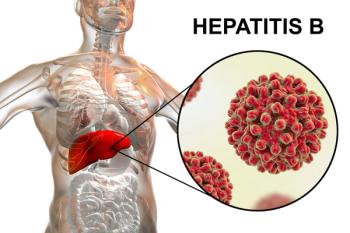
Nirsevimab Demonstrates Lasting Efficacy in Infants Through First RSV Season
The drug, marketed as Beyfortus, was approved by the FDA in July for the prevention of RSV lower respiratory tract disease (LRTD) in newborns and infants born during or entering their first RSV season, and for children up to 24 months of age who remain vulnerable to severe RSV disease through their second RSV season.
Data presented in Boston at IDWeek 2023 demonstrates and further supports the significant impact that a novel monoclonal antibody, nirsevimab, can have on respiratory syncytial virus (RSV)-related hospitalizations in infants who are experiencing their first RSV season.1
The drug, marketed as Beyfortus, was approved by the FDA in July for the prevention of RSV lower respiratory tract disease (LRTD) in newborns and infants born during or entering their first RSV season, and for children up to 24 months of age who remain vulnerable to severe RSV disease through their second RSV season.
In a presentation, Saul N. Faust, FRCPCH, PhD, of the University of Southampton and University Hospital Southampton NHS Foundation Trust, recounted data from the HARMONIE clinical trial conducted in the United Kingdom, France, and Germany that included 8058 infants who were randomly assigned to receive nirsevimab (n=4037) or no intervention (n=4021). Infants were at least 29 weeks gestational age, and those in the intervention group received a single intramuscular injection of nirsevimab (<5 kg 50 mg; ≥5 kg 100 mg) before or during the RSV season, and were monitored for all-cause lower respiratory tract infection.
Overall, nirsevimab demonstrated an 83.21% efficacy in preventing RSV LRTI, with a confidence interval of 67.77-92.04%. This efficacy was observed across various infant subgroups, including those who were born at term (≥37 weeks) or prematurely (<37 weeks), with nirsevimab displaying efficacy rates of 84.41% (CI, 64.92-94.10%) and 78.31% (CI, 33.49-94.69%), respectively. Additionally, the weight of infants at randomization, whether below 5 kg or 5 kg or greater, had no discernible impact on nirsevimab's effectiveness, with efficacy rates of 82.12% (CI, 59.14-93.30%) and 85.16% (CI, 57.01-96.25%) reported, respectively.
Notably, nirsevimab's impact on all-cause LRTI hospitalizations was 58.04% (CI, 39.69-71.19%), which underscores the broader potential of nirsevimab in mitigating the overall burden of LRTIs in infants.
The introduction of nirsevimab to the RSV treatment landscape, in addition to the preventive vaccines, has the potential to significantly reduce the incidence of RSV LRTIs.
Reference
1. Faust SN, Cathie K, Drysdale SB, et al. The Impact of Nirsevimab on an RSV Season in All Infants: Data From The HARMONIE Study. Presented at: IDWeek 2023. October 11-14, 2023; Boston, MA. Abstract 89.
Newsletter
Pharmacy practice is always changing. Stay ahead of the curve with the Drug Topics newsletter and get the latest drug information, industry trends, and patient care tips.

























